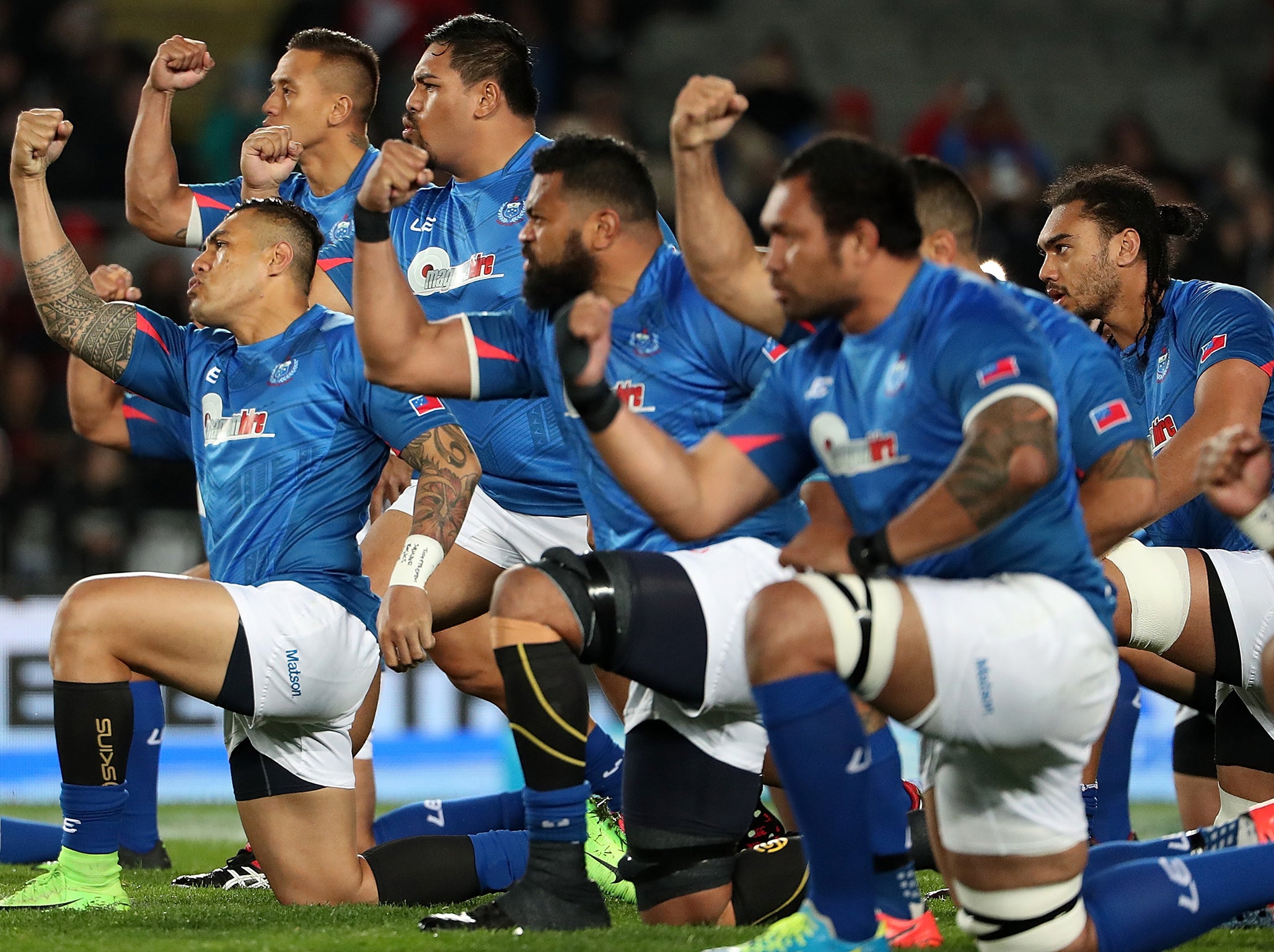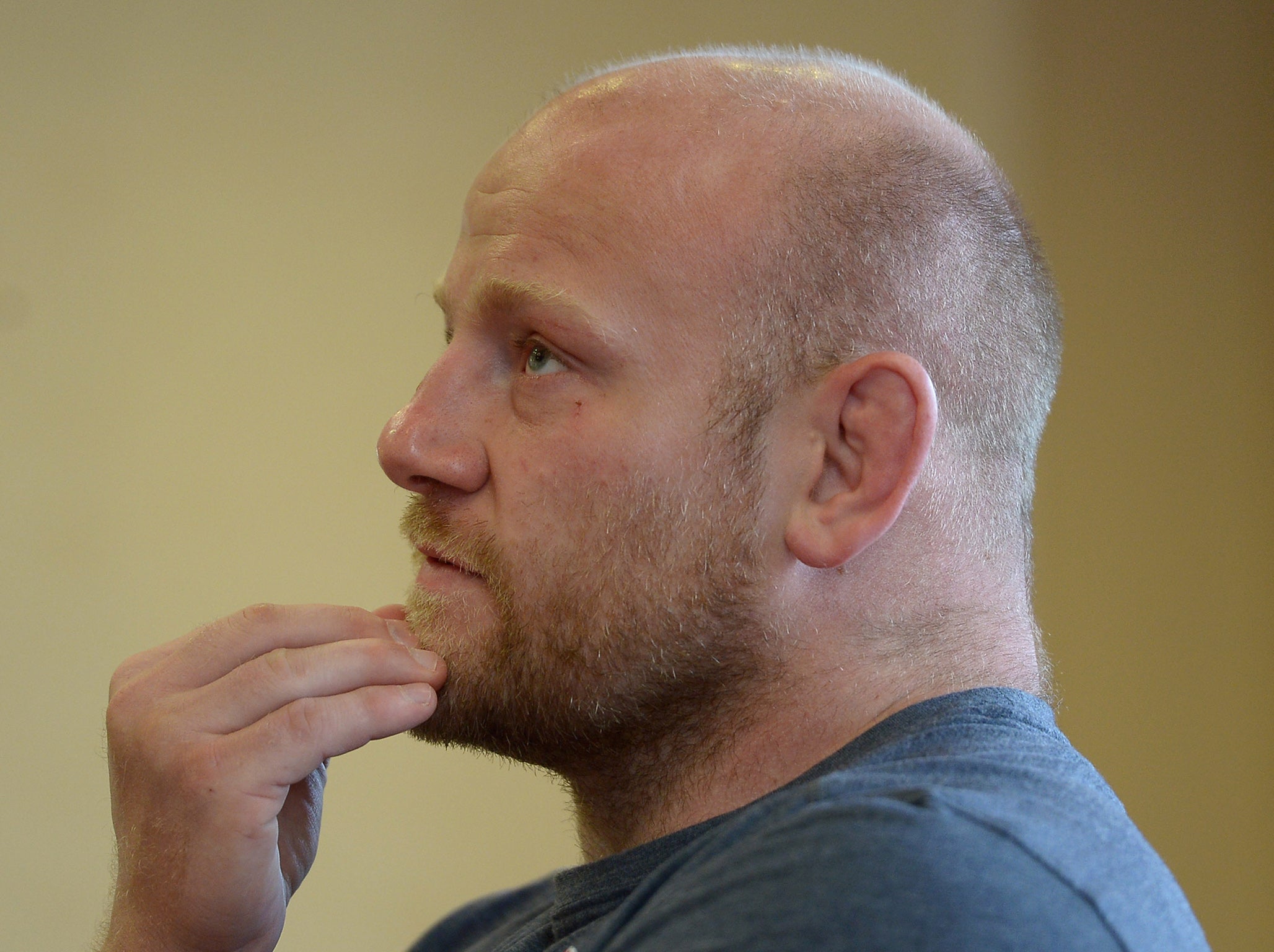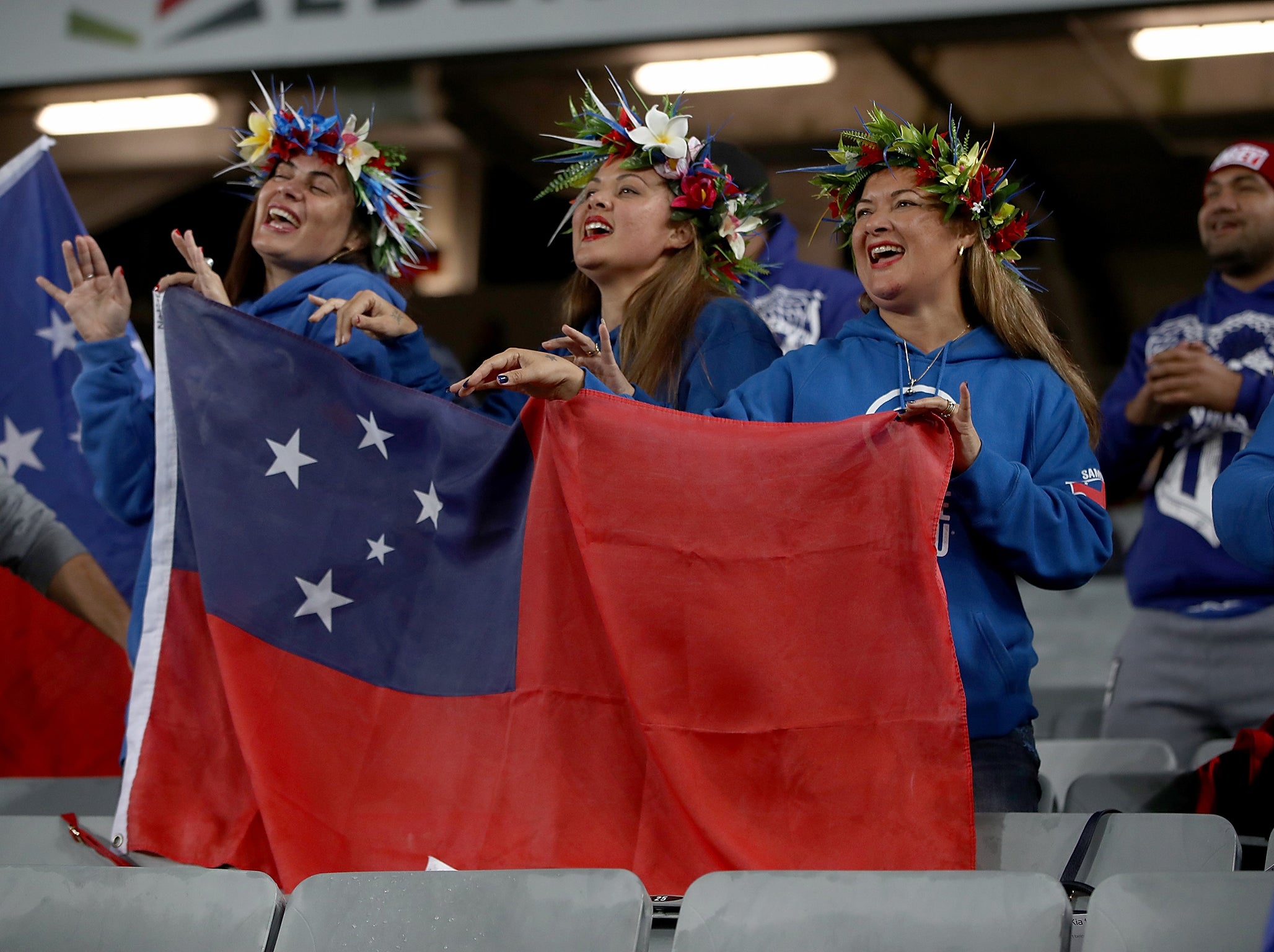England owe Samoa nothing - but they and rugby have an obligation to help
England have ruled out making a donation to Samoa on ‘ethical grounds’ – fine. But rugby's financial model must be examined so that it better supports the cash-strapped Pacific nations

Philosophy professors often like to talk about the parable of the drowning child. You’re on your way to work when you see a child drowning in a pond. You can try to save the child at no risk to yourself, but you’ll get your suit dirty. Do you do it? Well, of course you do. You read The Independent. You’re not a monster.
OK, now let’s complicate things. Let’s say there are plenty of other people walking past, doing nothing. Does that not make a difference? What about if the child was specifically warned not to go near the water? Actually, you should probably know a bit about the child before you take the plunge. It’s a real rotter. I mean, a total brat. The sort who shouts things out on public transport. And doesn’t share. And will probably grow up to be an estate agent or something.
Oh, so you still want to jump in? How about this? The child actually has a psychological condition that compels it to jump into ponds. If you save it now, it’ll just jump into another pond later. Plus, think of all the kids drowning in ponds all over the world. You can’t save them all. Don’t encourage them. Don’t interfere. This isn’t your fight. And yet, for all this, most people’s first and most natural instinct is still generally to jump in anyhow.
It’s worth keeping this parable in mind when we come to consider the case of the Samoan rugby union team that will step out at Twickenham this weekend to play England. The build-up to the game has been dominated by the parlous financial state of England's opponents. The Samoa Rugby Union has declared itself bankrupt. A crowdfunding page has been set up to raise money for their beleaguered players.
Samoa's players earn around £650 a match, a figure dwarfed by the £22,000 England’s players could earn for playing the exact same game, on the exact same pitch, putting in the exact same shift. The Rugby Football Union, which will rake in around £5 million from Saturday’s game, is already making a generous £75,000 payment to cover Samoa’s costs. And so over recent weeks, various England players have floated the idea of donating a portion of their match fees to their Samoan counterparts as a solidarity gesture.
This week, however, senior players decided against it, with prop Dan Cole claiming that it was “above our station” as players to intervene in a financial dispute between Samoa and World Rugby. “We sign our contracts, and it's not for us to decide who we play or how much other people get paid,” Cole said.

Of course, this is a much more complicated story than it looks. For one thing, World Rugby dispute that the federation is indeed bankrupt, and says it has merely withheld some funding that was conditional on the SRU getting its house in order. There are potential tax issues over simply handing money over from player to player. Cole even suggested that it would lay Samoa open to charges of corruption if they lost the game heavily.
Meanwhile, few dispute the fact that Samoan rugby is shambolically run. The SRU chairman is also the country’s prime minister. Until recently, the union president was also the leader of the opposition. “The problem is we’ve got people making business decisions without any professional business experience,” former Samoa back-rower Daniel Leo said earlier this month. “But they continuously get voted in, because they are powerful politicians. In Samoa, there isn’t the culture where you rock the boat. You don’t speak up against elders.”

You see? Already extremely complicated. And so, there were plenty of sound reasons for England’s dressing room to decide against making the payment. It wasn’t their responsibility. It wasn’t their fight. It would distract from the real work being done. It would set a dangerous precedent. Would Samoa’s players even want to accept the money? And of course, they would always be open to the accusation that this was little more than a gesture: one that made everyone feel good, without getting close to fixing the underlying issue of how you make international rugby financially viable for everyone.
Yet here’s the problem: these are exactly the same excuses you could throw up not to save the drowning child. There’s always a reason not to act. There’s always a reason to do nothing. But at their very heart, societies are founded on the idea that those with the most should help those with the least. Hell, humanity is founded on that idea. Sometimes, you can just overthink these things.

Cole was right, of course. This is an issue that goes beyond the players, beyond even the RFU, to the very top of the global game. We need to talk about how rugby’s financial model can better support Samoa and the other Pacific nations, where virtually every game requires flying across an ocean. We need to talk about why the game’s richest nations have shown virtually no inclination to play there. We need to talk about whether World Rugby needs to focus less on wooing its lucrative new markets like the USA and China, and more on propping up its existing ones.
Yes, there’s plenty that can be done. But that doesn’t absolve those lower down from doing their bit. The fact that there are other effective ways of addressing the problem doesn’t erase the obligation for everyone to do what they can. And without wishing to create easy scapegoats, England’s players have passed up that chance this week.
No, they personally owe Samoa nothing. But the game owes them plenty. Consider how players like Manu Tuilagi, George Pisi and Alapati Leiua have enriched our domestic rugby. Consider how much skill and passion for the game Samoa has packed into its tiny islands. At a rough estimate, around one in three of the country’s adult male population is a registered player. There are 140 clubs crammed into an area the size of Gloucestershire. If England punched above their weight like Samoa did, it might boast a better record than two World Cup finals in two decades.
And really, this is about so much more than bunging a few struggling players a few hundred quid. It’s about a choice we make every day: are we prepared to help those less fortunate, however hard it may be, however complex the situation, however insignificant the contribution, however undeserving the recipient? There’s always a reason not to. But sometimes, you just need to roll up your trousers, dive in and ask questions later.
Join our commenting forum
Join thought-provoking conversations, follow other Independent readers and see their replies
Comments